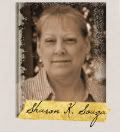 Remember that today is the last day to get your entries submitted for our 'Audience with an Agent Contest.' Please see our 'Promotions' section for details. We can't wait to read your entry!
Remember that today is the last day to get your entries submitted for our 'Audience with an Agent Contest.' Please see our 'Promotions' section for details. We can't wait to read your entry!Some people won't read a book if they learn beforehand that the ending is not a happy one. In fact, I once had it explained to me this way: "It's fine to give your story a down ending, so long as you are ready to accept that you are writing to a smaller audience. A much smaller audience."
I get it. It's a great feeling to turn the last page of a book knowing all the characters you've come to love are safe and sound. Our day to day lives are fraught with uncertainty, so when we enter a story, we like to know that in the end, all our worries will be put to rest, that everything is going to work out fine.
The only problem with a happy ending is that we know what it will be, generally by the end of the first chapter. The boy will get the girl. David will triumph over the giant. It can be fun learning how he triumphs, but really, at some point toward the end of the book it will no longer be necessary to continue reading. You could write the ending yourself. In his wonderful book, Story, Robert McKee tells us, "Anyone can deliver a happy ending. Just give the characters everything they want."
But there are more ways than one to write a happy - or let's say a sort of happy - ending. Last night I finished reading a novel that ended very differently from the way I'd imagined it would. (I'd give you the title, but I hope you will read this one someday, and I don't want to spoil it.)
I'd thought the character would ultimately mend the troubled relationship with his father. Instead, just when things looked hopeful, he did the one thing that would smash that relationship all to bits, and was thereafter separated from his family and all he loved, perhaps forever.
A terrible ending.
And yet...
And yet he walked away with a new understanding of his own power to wound. He walked away a wiser, better man.
A bit more from Story by Robert McKee:
"In Aristotle's words, an ending must be both "inevitable and unexpected." Inevitable in the sense that as the Inciting Incident occurs, everything and anything becomes possible, but at Climax, as the audience looks back through the telling, it should seem that the path the telling took was the only path. Given the characters and their world as we've come to understand it, the climax was inevitable and satisfying. But at the same time it must be unexpected, happening in a way the audience could not have expected."The ending I described above was unexpected, but it was also inevitable. The fact that the story remained true to itself to the last was what made the novel different from a million lesser novels that have given me the endings I wanted.
How about you? Do you demand a happy ending, will a "sort of" happy ending do, or are you fine with any ending that rings true? We love to read what you think.

































